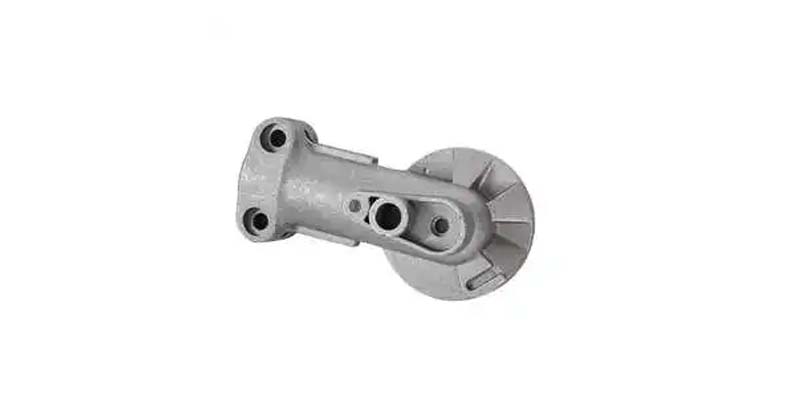- Contact Innally, Let you purchase forgings in China more favorable prices, products more assured!
- Hotline:+(86)15038323776 Email:innally@innally.com
Application and development trend of aluminum alloy forgings in automobile manufacturing
- Category: Aluminium alloy forging, Thermal forging
- |
- Date: 09/01/2024
The future application of aluminum alloy forgings will not only be limited to a single material, but also will be mixed with other materials such as steel and magnesium. Through reasonable material selection and structural design, the vehicle performance can be optimized. In summary, aluminum alloy forgings play an important role in automobile manufacturing, and its application and development trend will continue to promote the progress of the automotive industry.
Product Details
With the increasing awareness of environmental protection and the continuous growth of energy consumption, the automotive industry is facing great challenges. In order to achieve the goal of energy saving and emission reduction, automobile manufacturers are looking for lightweight solutions. As a material with excellent properties, aluminum alloy has been widely used in automobile manufacturing. This paper will focus on the application and development trend of aluminum alloy forgings in automobile manufacturing.
First, the characteristics and advantages of aluminum alloy forging
Aluminum alloy forgings have the advantages of good plasticity, corrosion resistance, electrical conductivity and thermal conductivity, etc., which are suitable for manufacturing automotive structural parts, power system parts and appearance coverings. Compared with traditional steel, aluminum alloy forgings have lower density and higher specific strength, which can effectively reduce vehicle weight, improve fuel economy and performance.

Second, the application of aluminum alloy forgings in automobile manufacturing
Engine parts: Aluminum alloy forgings are widely used in engine cylinder head, piston, connecting rod and other parts. By using aluminum alloy forgings, the weight of the engine can be effectively reduced and fuel efficiency can be improved.
Chassis components: The application of aluminum alloy forgings in automotive chassis includes suspension system, steering system and braking system. Aluminum alloy materials provide better corrosion resistance and higher strength, thus improving vehicle handling and safety.
Body parts: Aluminum forgings can be used to make body structure parts such as doors, body frames and bumpers. The use of aluminum alloy material can reduce the weight of the body, improve the fuel economy and power performance of the vehicle.
Exterior coverings: Aluminum forgings are also widely used in automotive exterior coverings, such as hoods, roofs and fender panels. Aluminum alloy material has excellent appearance quality and corrosion resistance, which can improve the aesthetics and durability of automobiles.
Third, the development trend of aluminum alloy forgings
Lightweight design: With the increasing demand for energy saving and emission reduction, the lightweight design of aluminum alloy forgings will become an important trend in the future. By optimizing material selection and structural design, further reducing vehicle weight and improving fuel economy.
Efficient forming technology: The continuous development of forming technology will further improve the performance and manufacturing efficiency of aluminum alloy forgings. For example, the development of technologies such as hot forming, warm forming and cold forming will provide more possibilities for the manufacture of aluminum alloy forgings.
Recycling: With the enhancement of environmental awareness, the recycling of aluminum alloy forgings will become an important development direction. Resource consumption and environmental pollution can be reduced by recycling and reusing waste aluminum alloy materials.
Intelligent manufacturing: The introduction of intelligent manufacturing technology will further improve the production efficiency and product quality of aluminum alloy forgings. For example, robots and automated equipment are used for processing and testing to achieve intelligent and flexible production processes.
Multi-material mixed application: The future application of aluminum alloy forgings will not only be limited to a single material, but also will be mixed with other materials such as steel and magnesium. Through reasonable material selection and structural design, the vehicle performance can be optimized.
In summary, aluminum alloy forgings play an important role in automobile manufacturing, and its application and development trend will continue to promote the progress of the automotive industry. With the continuous progress of technology and the improvement of application demand, it is believed that aluminum alloy forgings will play a more important role in the future automobile manufacturing.
nannan
INNALLY mainly provides you with various types of cast and forged parts products. Welcome your inquiries! innally@innally.com
Related Products
Search
Forging center
- Steel forgings
- Aluminium alloy forging
- Titanium alloy forging
- Stainless steel forging
- Copper forging
- Automotive forgings
- Locomotive forging
- Bicycle forgings
- Motorcycle forging
- Rigging and fasteners
- Bearing forging
- Electric power fittings
- Marine forging
- Mechanical forgings for metalworking
- Mining machinery forgings
- Marine engineering forgings
- Construction machinery forgings
Popular product

© 2025. All Rights Reserved.






